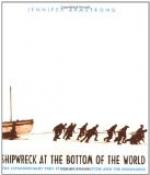Lihoa sent his companions to the hamlet with the command, that those who wished to go on the trip to the Goldland were to get ready immediately, and he betook himself straight to the College of the Holy Saviour. There he asked to see the foreign teacher. Father Somazzo came into the reception room, and learned to his utter astonishment that the old Chinaman had called to demand his beloved pupil, little Peppo. Quietly the priest listened while the old man spoke, then took a pinch of snuff, and said: “My dear friend, for twelve years we have had this boy in our care, and have spent much time and money on him, and now that he is old enough to be of use, you ask us to give him to you. You are unreasonable. Prove in the court that the child is yours, and then, that we took him illegally, and you can have him. He has not been brought up in your religion, as you know, but is a Christian. We have many plans and hopes for him, and I am sure he will not care to leave us. Go, and may peace attend you.”
“But I am the boy’s uncle, and an uncle has paternal power over his sister’s children according to Chinese law. I know the boy by the birthmark on his wrist,” said Lihoa.
“Take your claims into court, and we will settle them there. In the meantime may peace attend you,” repeated the missioner as he left the man.
Lihoa expected a refusal, for he was not so simple-minded as to believe that the child would be given over to him without ado, but the answer that he received, according to his way of thinking, justified his kidnapping his nephew. He knew a Chinese youth, who was a servant at the seminary, and to him he went for help to carry out his plan of getting possession of Peppo. In a nearby tavern he waited for Totu—for that was the youth’s name—knowing that while the missioners and their pupils were at table, he was accustomed to come here for a glass of saki, a wine made from burnt rice. When he entered, Lihoa went and sat down beside him, addressed him as cousin, and ordered and paid for a second glass of saki. The two conversed for a time in low tones, then finally Totu said:
“Agreed! The day after to-morrow, at the New Year’s celebration, I’ll see to it that you get your nephew, but may the gods of the sea destroy your ship, if you do not pay me the money you say you will. I must have three tael to-morrow, for this may cost me my job, and you know, ’No penny, no paternoster’.” Lihoa promised what Totu asked, and the two separated.
CHAPTER VI.
The Chinese New Year.




